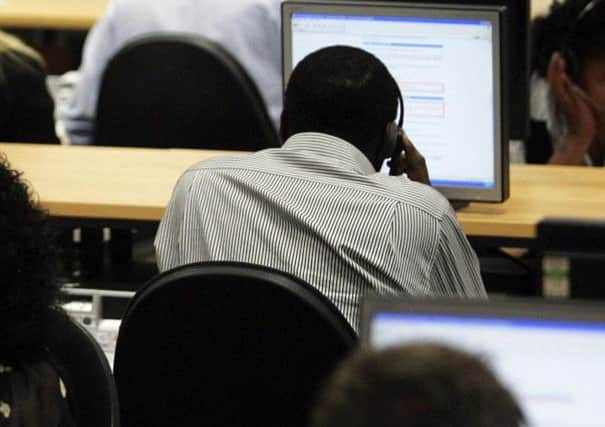1.4 million workers ‘have zero-hours contracts’


The Office for National Statistics (ONS) said most of the contracts were zero-hours, under which people are not guaranteed work from one week to the next, but officials pointed out that some workers could have more than one contract.
A study among employers showed that 13 per cent used non-guaranteed hours contracts, rising to almost half in the tourism, catering and food sectors.
Advertisement
Hide AdAdvertisement
Hide AdHigh street examples include Sports Direct, which employs 90 per cent of its 23,000 workforce on zero-hours contracts. Pub chain JD Wetherspoon has 80 per cent of its staff on zero-hours contracts. Cineworld, a number of London councils, the House of Lords and Buckingham Palace are also among those using the contracts.
More than one in five employers in health and social work reported using them, but they were relatively rare in financial, manufacturing, energy and agricultural services.
The ONS study of 5,000 employers is the biggest of its type yet and showed the average number of hours on the contracts was 25 a week.
Women, under-25s and those over 65 were more likely to be on zero-hours contracts. Two-thirds of those counted worked part-time.
Larger employers were more likely to use zero-hours contracts. TUC general-secretary Frances O’Grady said: “Insecure work with no guarantee of regular paid hours is no longer confined to the fringes of the jobs market.
“It is worrying so many young people are trapped on zero-hours contracts, which can hold back their careers and make it harder to pay off debts like student loans. The fact that these contracts have become the norm in sectors like tourism, catering and food will be a major concern for the millions of people employed in these industries.”
Paul Kenny, general-secretary of the GMB, said: “The growing recognition of the extent of exploitation of workers on contracts that do not guarantee a minimum number of hours is welcome and must lead to action to tackle it.
“Minimum hours should be specified in contracts and workers should have the right to claim deemed contractual hours on the basis of their average hours over any 12-week period.”
Advertisement
Hide AdAdvertisement
Hide AdUniversity and College Union general-secretary Sally Hunt said: “The use of zero-hours and other temporary contracts in education is far more prevalent than many people realise. These contracts deny staff full employee status and key employment rights, while students miss out on a lack of continuity.”
Citizens Advice chief executive Gillian Guy said: “People are desperate for stable work. Those who are on zero-hours contracts are often not given any work, leaving them struggling to pay rent, keep the lights on or put food on the table.
“At the same time fluctuating income can make it almost impossible for people to claim out-of-work benefits.
“Unscrupulous employers are using zero-hours contracts to deny workers their basic rights.”
Business Secretary Vince Cable has launched a consultation on the issue and said the results of this will be published soon.